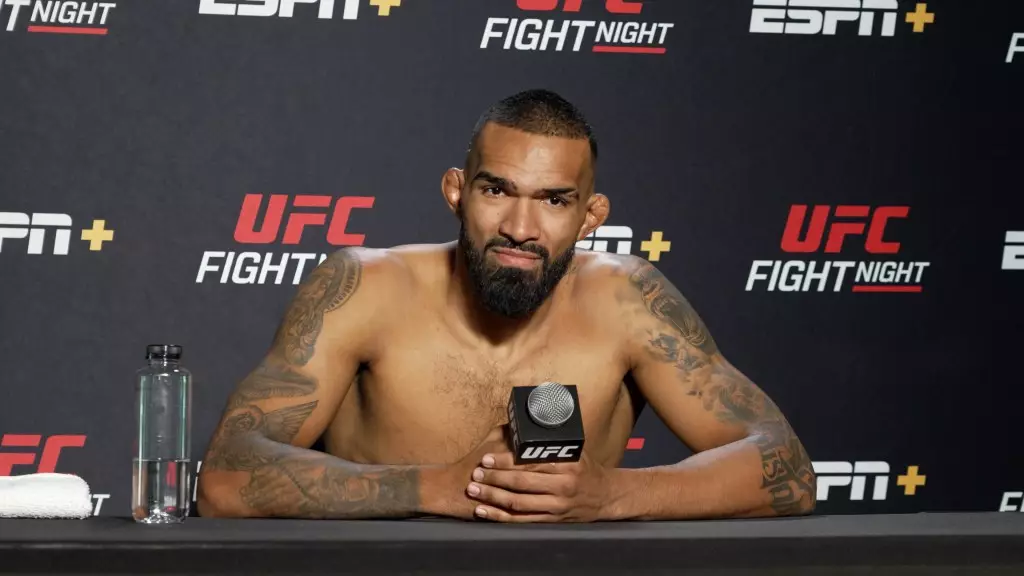Brendson Ribeiro cemented his presence in the UFC with a decisive win over Diyar Nurgozhay at UFC Fight Night 254, showcasing not just his skills but a remarkable mental fortitude. What makes this victory particularly compelling isn’t just the swift submission in the second round but the backdrop of tension surrounding Nurgozhay’s weigh-in failure. Missing the mark by 4.5 pounds for his UFC debut not only disqualified him from competing in the designated weight class but also shifted the spotlight onto Ribeiro—a fighter who was already prepared to battle a more formidable opponent in his own mind.
The mental aspect of sports often remains under-discussed, yet Ribeiro’s approach offers a refreshing perspective. By divulging details about his personal journey through therapy and sports psychology, he provides a blueprint for aspiring fighters: mental discipline is just as crucial as physical prowess. His comments illustrate that he acknowledges the emotional hurdles that come with competition and emphasizes preparedness for any situation. This is a narrative many can relate to beyond the octagon, reflecting the power of mindset in overcoming obstacles.
A Fighting Spirit Ignited
The immediate aftermath of Ribeiro’s victory encapsulated his anticipation for future challenges. Ribeiro expressed an eagerness to “kill it” when the next opportunity arises, a sentiment that resonates with anyone who has faced setbacks and aims to rise again. His workplace analogy referring to soccer further highlights an intrinsic quality of great competitors—the relentless drive to seize opportunities. The interview hints at a man who has both a clear vision and an equally clear plan for how to get there.
Ribeiro’s words are not mere bravado; they signify a commitment to continuous improvement and self-betterment. In an interview post-fight, he emphasized that he is not waiting for opportunities to come to him; instead, he is ready to actively chase them. This prepared mindset is pivotal in a landscape where fighters can easily become stagnant. By loading his toolkit with psychological resources, he stands as a role model in a field often characterized by physical conditioning alone.
The Weight of Expectations
Although Nurgozhay entered the match as a favorite, his failure to make weight added pressure not only on his shoulders but also indirectly elevated Ribeiro’s stakes within the fight community. Fans and pundits alike are quick to pivot narratives when expectations shift, and Ribeiro’s win reflects a recurring theme in sports: the unpredictability of competition. As Ribeiro dismantled Nurgozhay’s game plan with calculated precision, he not only reclaimed agency in the fight scenario but also presumably alleviated some of the mounting expectations surrounding his own career trajectory.
Ribeiro’s journey reflects a microcosm of broader themes within MMA, where preparation, adaptability, and the right mindset often separate winners from those who falter. His ability to transition successfully following past struggles shows how adversity can be steered towards personal and professional growth. The fighter embodies resilience—both mentally and physically—promising to be a captivating story to watch as his career progresses in the UFC.
In the high-octane atmosphere of the UFC, Ribeiro’s message resonates: success is a multifaceted endeavor, demanding a balance of mind, body, and strategy. With his sights firmly set on more opportunities, this Brazilian powerhouse appears ready to make a significant impact in the world of mixed martial arts.

